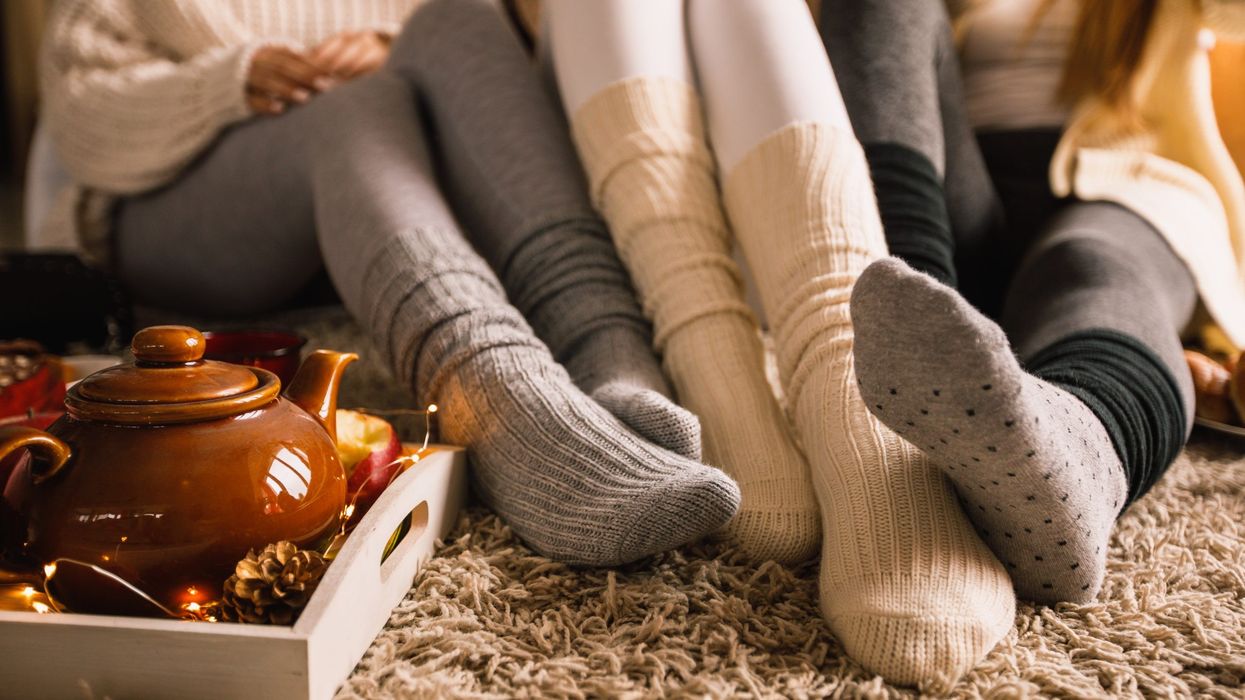Experts have warned that the way Brits heat their homes this winter could damage their health, especially for those with heart and lung conditions.
With the cost-of-living crisis continuing across the UK, many people are trying to reduce their gas and electricity bills by turning the heating off. However, this could cost people their health, The Sun reports.
A leading expert has warned there is a “massive conundrum” where people are trying to reduce costs, but at the same time reducing the ventilation in their homes, leading to problems.
Since many people are trying to keep warm as cheaply as possible, they are reportedly adding new pollutants to the air indoors by burning wood or keeping the windows closed while cooking.
Professor of environmental engineering for buildings at the University of Leeds, Cath Noakes explains that closing the windows, turning the heating off, and using log burners to stay warm could be dangerous.
She reportedly said this will make people more vulnerable to health risks and accelerate the spread of infection.
In addition, a report that featured in The Guardian around two months ago informs that according to a survey of more than 2,000 adults in the UK, 23 per cent are planning to do without heating this winter, while approximately 70 per cent are planning to turn their heating on less.
Prof Noakes, who was one of the advisers on the Government’s Scientific Advisory Group for Emergencies during the Covid-19 pandemic is reported to have said, “I have a real concern that some of the things people are doing actually have a compounding effect.
“So, if you are at home, for example, and you don’t turn the heating on and you keep the window shut, not only have you reduced ventilation, but you’ve also created a condition where you might get more damp and mould, which has a knock-on effect of impacting your health.”
According to the World Health Organization’s housing and health guidelines, low temperatures cause blood vessels to narrow, and this puts stress on the circulatory system. “[This] can lead to cardiovascular effects, including ischaemic heart disease (IHD), coronary heart disease, strokes, subarachnoid haemorrhage and death.”
Cold air also affects the functioning of the respiratory tract. Sarah MacFadyen, the head of policy and external affairs at Asthma + Lung UK, is quoted as saying, “Winter is the deadliest season for people with lung conditions, and we’re deeply concerned that energy price hikes will leave tens of thousands of people unable to heat their homes and fighting for breath.
“Breathing in cold air irritates your airways, and your lungs react by becoming tighter, which makes it more difficult to breathe. The cold is a common trigger for people with conditions like COPD and asthma and leads to life-threatening flare-ups and attacks.”
COPD refers to chronic obstructive pulmonary disease which is an inflammatory lung disease. Cold temperatures increase the risk of chest infections.
Asthma + Lung UK is already experiencing an increase in calls to its helpline and visits to its website. “We’re worried we’re going to see a sharp decline in the country’s lung health this winter,” MacFadyen said.
Speaking about the serious consequences of homes that are not warm enough during winter for people with respiratory conditions, Dr Andrew Whittamore, clinical lead at Asthma + Lung UK, reportedly said, “Having a cold home could put people with lung conditions more at risk of getting a respiratory infection.
“This is because cold and flu viruses, which can cause respiratory infections, thrive in colder temperatures and poorly ventilated, damp environments. Long-term exposure to colder temperatures and mould can also affect our immune response, hampering our ability to fight off respiratory infections.”
Also, previous research by professor Noakes reportedly found that proper ventilation in a room with fresh air can reduce the risk of Covid infection caused by airborne droplets, by up to 70 per cent.
Though Covid infections have reduced in recent weeks and the Omicron strain is found to be milder than those that came before it, people are still contracting the infection along with other respiratory infections such as flu.
Therefore, keeping this in mind, the professor informs that the importance of managing ventilation in homes goes beyond Covid.
The expert adds that good ventilation in the house will also help to avoid the spread of transmission of other infections such as TB, measles, chicken pox, and other respiratory diseases like influenza.
“There is so much evidence that the quality of the air we breathe is really important for our health – and ventilation is a really big part of that," said Prof Noakes.
She states, “It is critical to making buildings more resilient to health threats, including our regular battles with the transmission of colds and flu around crowded indoor spaces."
According to the expert, there are many ways to improve ventilation without increasing the costs.
For example, you can open the windows intermittently, to get some fresh air without impacting your energy use.
“Making sure you open a window after you’ve had a shower or using an extractor fan in your kitchen when you cook can also help.
“You’re only using it for short periods of time – so you’re not using much energy to provide ventilation," the expert adds.




